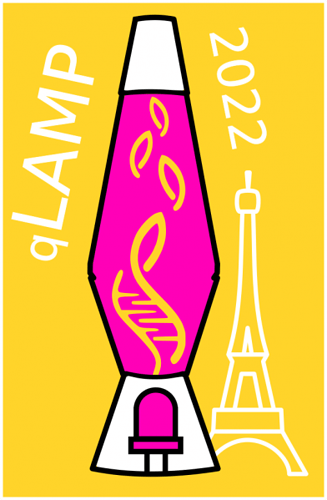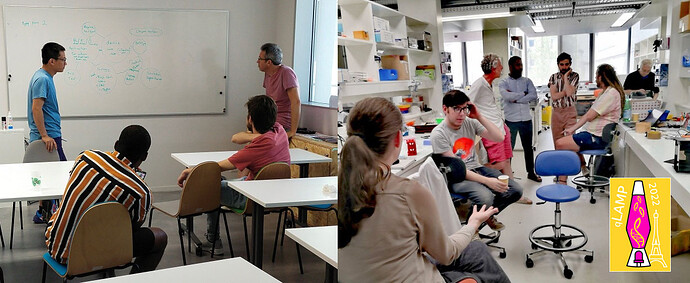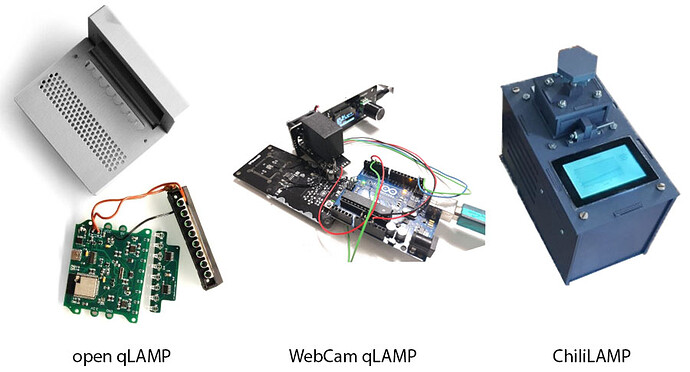Good evening all!
This week starts the hardware residencies at the Learning Planet Institute (Former CRI, Paris) for real-time isothermal amplification analysis supported by the 2022 Collaborative Development Program.
These residencies aim to exchange knowledge and share solutions that different groups working with real-time nucleic acid amplification hardware have found separetely during this last years. The idea is to document which technologies work better for the different applications while we benchmark the different pros and cons of each one. At the end of the residency, we will record a series of new designs and solutions that the rest of the community can replicate/adapt for their own purposes.
Some of the most relevant projects of the residents who will join us locally and remotely are described here.
In a nutshell, locally we will count with @gaudi (Switzerland) @Hail_Harry (Ghana), Boris Orostica (Chile) and Yanwu Guo (Oslo). Remotely will join @shingohisakawa (Japan), @dusjagr (Indonesia), @scientist (Ireland), Smitha S Hegde (Denmark) and Fernan Federici (Chile).
As a brief description of our program, we will be doing the following activities:
On Monday the 13th, 9am-10am CEST (room 5.08, 5th floor)
Kick-off presentations
Link to join on google meet.From Monday the 13th to Friday the 17th, 11am-7pm CEST (Student Lab, room 1.16, 1st floor)
Hands-on experimentation. We will stream the lab activity on twitch, where we will interact with our viewers by answering questions and listening to feedback.Saturday, the 18th, starting 3pm CEST (Learning Extension Center, Room 0.06, ground floor)
Final presentations of the obtained results and discussion with invited GOSH guests @jcm80 (Open Bioeconomy Lab, Cambridge node), Jim Haseloff (OpenPlant initiative, Cambridge University) and @Rachel (Hackuarium, Switzerland)
Link to join on google meet.
During the week, we will be offering different training sessions on LAMP, real-time amplifier sensors, and other technologies, but the program may be subjected to day-before-adaptations we may need to make to compatibilize experiments, presentations… Stay tuned to the project page on the hackteria wiki, where we will be documenting all the progress and updating the schedule, and join the globalLAMP telegram channel where we are normally chatting about this technologies and events.
See you soon!


